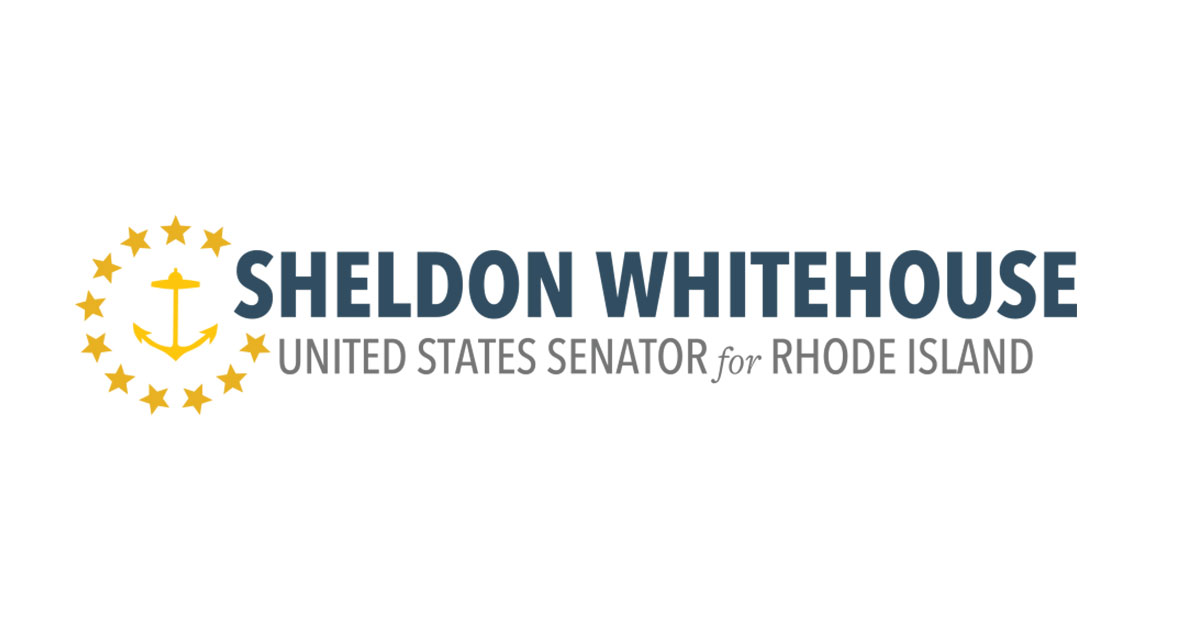Source: United States Senator for Rhode Island Sheldon Whitehouse
04.25.23
Whitehouse’s SCERT Act would require the Supreme Court to adopt stricter disclosure rules and establish a process for investigating a justice’s misconduct
Washington, DC – U.S. Senator Sheldon Whitehouse (D-RI) is urging the Judicial Conference’s Committee on Financial Disclosure to move swiftly in determining whether to refer Justice Clarence Thomas to the Attorney General for apparent violations of the Ethics in Government Act. In a new letter to the Director of the Administrative Office of the United States Courts, who also serves as Secretary of the Judicial Conference, Whitehouse also requested additional information on the Judicial Conference’s procedures for deliberating and reporting on these kinds of violations, including any existing rules governing those processes and whether the findings would be made public.
“In your reply to my letter with Ranking Member Johnson dated April 14, 2023, in your capacity as the Secretary of the Judicial Conference, you informed us that the question of referral to the Attorney General of Justice Thomas’s disclosure failures under the Ethics in Government Act had been referred to the Committee on Financial Disclosure. Given that the law states that the Judicial Conference ‘shall’ make this referral if it has a ‘reasonable cause to believe’ that an officer ‘has willfully failed to file information required to be reported,’ I hope that the Committee acts with due dispatch in deliberating and reporting its findings to the Judicial Conference,” wrote Whitehouse.
Whitehouse’s request follows a letter from the Director of the Administrative Office confirming that the Committee on Financial Disclosure is the judiciary’s official source for advice to judges regarding disclosure filings, but declining to clarify whether Justice Thomas sought such guidance on his financial disclosure reporting. The Director’s letter responded to both a letter Whitehouse wrote on April 10 asking whether Justice Thomas requested advice from the Judicial Conference on ethics questions and an April 14 letter from Whitehouse and Rep. Hank Johnson calling on the Judicial Conference to refer Supreme Court Justice Clarence Thomas to the U.S. Attorney General for potential violations of the Ethics in Government Act.
Recent reporting by ProPublica exposed that Justice Thomas and his wife accepted extravagant vacations worth as much as $500,000 on the dime of Republican megadonor Harlan Crow and did not disclose the travel. That report was later followed by an additional ProPublica story detailing Crow’s purchase of a string of properties from Justice Thomas and his family members, which was not properly disclosed.
In February, Whitehouse reintroduced the Supreme Court Ethics, Recusal, and Transparency (SCERT) Act, comprehensive bicameral legislation that would create a much-needed process for investigating misconduct at the Supreme Court, strengthen recusal standards for judges and disclosure rules for special interests trying to influence the courts, improve disclosure of gifts and travel for judges, and mandate the creation of a binding code of ethics. The SCERT Act would require the Supreme Court to adopt disclosure rules for gifts, travel, and income that are at least as rigorous as ethics rules for members of Congress. The New York Times editorial board recently endorsed the legislation.
Read the full text of Whitehouse’s new letter here and below.
April 21, 2023
The Honorable Roslynn R. Mauskopf
Director, Administrative Office of the United States Courts
Secretary, Judicial Conference of the United States
One Columbus Circle, NE
Washington, D.C. 20544
Dear Judge Mauskopf:
Thank you for your prompt and courteous replies to my letters dated April 10, 2023, and April 14, 2023.
In your reply to my letter dated April 10, 2023, you confirmed that the Judicial Conference’s Committee on Financial Disclosure is charged with providing official answers and advice to members of the federal judiciary regarding their financial disclosure obligations under the Ethics in Government Act of 1978.[1] You declined to disclose whether Justice Thomas used this resource in seeking, as he stated, “guidance from [his] colleagues and others in the judiciary.”[2]
In your reply to my letter with Ranking Member Johnson dated April 14, 2023, in your capacity as the Secretary of the Judicial Conference, you informed us that the question of referral to the Attorney General of Justice Thomas’s disclosure failures under the Ethics in Government Act had been referred to the Committee on Financial Disclosure.[3] Given that the law states that the Judicial Conference “shall” make this referral if it has a “reasonable cause to believe” that an officer “has willfully failed to file information required to be reported,”[4] I hope that the Committee acts with due dispatch in deliberating and reporting its findings to the Judicial Conference.
In the interval, may I ask whether formal reports from this Committee (and other standing committees) to the Judicial Conference on particular matters such as these, once reported back to the Conference, are available to the public or to Congress via electronic search or upon request?
May I further inquire whether there has ever been a referral to the Attorney General by the Judicial Conference under 5 U.S.C. §13106(b), either as to a justice of the Supreme Court or as to any other member of the federal judiciary?
Finally, please provide any existing guidelines governing the Judicial Conference’s procedures for the consideration of possible violations of the Ethics in Government Act and referrals to the Attorney General under that statute. Please include any guidelines governing the process by which: the Judicial Conference refers such matters to the Committee on Financial Disclosure, the Committee convenes to deliberate (including when such deliberation occurs), the reporting out of the Committee’s findings and recommendations to the Judicial Conference, and any deliberation by the full Judicial Conference before deciding on the resolution of these matters.
Thank you for your courteous attention to these various matters.
Sincerely,
